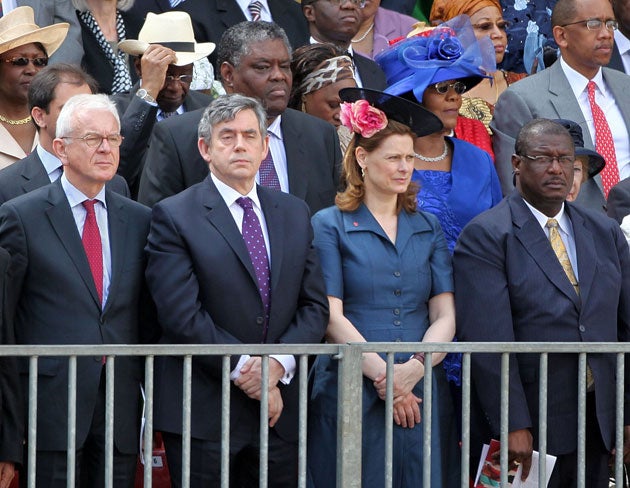Brown announces Iraq war inquiry – but it will be behind closed doors
PM's move is designed to bolster position with backbenchers as Miliband continues dithering, but opposition MPs will react with outrage at secrecy surrounding long-awaited investigation

Gordon Brown will attempt to win over Labour MPs this week by formally announcing an inquiry into the Iraq war. In a move designed to draw a line under the most controversial act of a Labour government, the Prime Minister will announce the investigation into the decision to go to war in 2003 and its protracted and bloody aftermath.
But he is expected to announce the probe, delayed until the final British combat troops returned from Iraq last month, will be held mainly behind closed doors, similar to the Franks Inquiry into the Falklands conflict.
Labour backbenchers and Liberal Democrats have been demanding a full public inquiry. Mr Brown will set out the details of the inquiry in the Commons early this week as he continues his fightback after the failed coup that nearly ended his premiership.
Mr Brown was hit by continuing revelations into the circumstances of the coup – including the Foreign Secretary, David Miliband, confirming publicly for the first time that he considered resigning at the same time as his Cabinet colleague James Purnell.
The former deputy prime minister John Prescott added more intrigue to the events in Westminster when he said he had already had "suspicions" about Mr Miliband after seeing him deep in conversation with the Blairite Alan Milburn last week – even though Mr Milburn has denied being part of the plot.
Mr Prescott rebuked the Foreign Secretary for revealing that he had thought of quitting. Mr Miliband told The Guardian: "I'd made my decision on Thursday. Sometimes you can make your decisions with great planning and calculation, sometimes you have to make them rather more quickly. James made his decision in good faith, I made my decision in good faith ... We all have to live with our decisions."
Writing on his blog, Mr Prescott said: "Why make a statement like this just when the party is pulling together and fighting back, especially after the political cabinet yesterday?"
Meanwhile, the Secretary of State for Business, Lord Mandelson, warned that the rebels, led by Charles Clarke, would attempt a further coup in the autumn, around the time of the party conference, but said he "wouldn't lose any sleep" over the threat.
But the comments from the two cabinet ministers were at odds with the Prime Minister's closest allies, who told The Independent on Sunday last night that Mr Brown's fortunes could be compared to the "ups and downs" experienced by David Beckham.
The insider admitted that the Government under Mr Brown needed "more poetry", but insisted that the PM was determined to fight on.
But Mr Brown is expected to face MPs' anger this week if the Iraq inquiry is held in private, as Whitehall sources indicated that it would be similar to the Franks inquiry into the Falklands conflict, which sat in private and was conducted by privy councillors.
Mr Brown has asked the Cabinet Secretary, Gus O'Donnell, to look at the scope, membership and timing of the inquiry, and there may be some opportunity for the public and media to hear discussions, but this would be strictly limited, the Government is expected to say.
A Liberal Democrat spokesman said: "We have always argued that we need a full public inquiry into the events that led us into this disastrous war.
"For this inquiry to be successful, it needs to be fully open, so that the whole country can understand the decisions that led us into the worst foreign policy mistake since Suez."
A Downing Street spokesman refused to comment on the inquiry.
Last night, one of the early favourites to be the next Speaker, the Labour maverick Frank Field, announced that he was unlikely to run after it became clear he could not command support among Labour MPs.
The Tory MPs John Bercow and Ann Widdecombe are now regarded as frontrunners.
t A number of MPs have launched an eleventh-hour attempt to cover-up details of their expenses before they are published in full for the first time this week, the IoS understands.
Several MPs asked Commons officials to black out items on receipts for which they insisted they had not received money – even though the bills had been submitted in full to the Fees Office. The revelation will fuel concerns that MPs are trying to bury details of their claims, and suggests that there are more damaging revelations to emerge which have not been published in the Daily Telegraph.
Officials told MPs that the items in question would be redacted only if there was proof that the member had not received any money for them.
Join our commenting forum
Join thought-provoking conversations, follow other Independent readers and see their replies
Comments
Bookmark popover
Removed from bookmarks